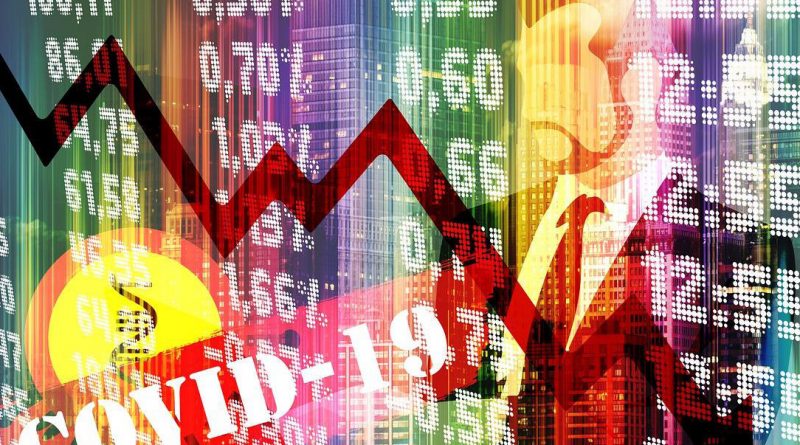COVID-19: A Plague on Minds and Markets
Joaquin Matamis
Staff Writer
For the past two months, the coronavirus, more aptly named COVID-19, has rapidly spread around the globe. With an estimated 106,000 people infected and 3,500 dead worldwide, a new culture of fear and paranoia has supplanted the peaceful start to the new year. Among the other devastating effects of COVID-19, widespread uncertainty has been the most damaging to the international community and the global market.
For one, concerns about China’s containment efforts led to the closure of numerous businesses and factories, ushering in a sudden supply shock to the world economy. These results were not unexpected, but the complacency of businesses and media at the outset of the COVID-19 outbreaks only exacerbated and defied expectations. Looking to Shanghai, even amidst empty, inactive streets and Orwellian health checkpoints, as CNN reports, some are cautiously optimistic. Yena Lei, a financial industry manager, stated, “If you look at our stock market, it’s still okay. But the economic situation, I have to say, it will get worse, not immediately but maybe later. Overall, I think this year will not be the year we had expected.”
Initially, investors also had the same mentality regarding the stock market. Stock prices began to fall as news about COVID-19 broke out, giving opportunistic investors a chance to set up long term investments. As The New York Times notes, “First, they are betting that the Fed can and will act if necessary should the virus start to do real damage to the economy. Second, if that were to happen, they are betting that the Fed’s diminished capacity to deal with future shocks won’t be a problem.” This statement comes even with the high risk of the stock market and future, unforeseen disaster.
As more news about the virus’s spread broke out on the week of February 23, announcements from different corporations including Apple, the International Air Travel Association, and Daimler (Mercedes-Benz) induced widespread panic and anxiety among consumers and investors alike. The New York Times also adds that Chinese central banks reduced their rates, lowering expected economic growth and dissuading investors from spending.
Business sectors in the hospitality and travel industries are suffering the most as a direct result. Diane Swonk, a chief economist at Grant Thornton, told The Wall Street Journal “Workers can’t all work from home, and you’ll see lost output that can never be made up. You can’t attend a canceled sporting event later and you won’t buy a sweater you wanted in March in late April.”
As a result of the virus’s effect on businesses, unemployment could rise in the short term with continued soaring prices, planting the seeds for a cycle of stagflation at the macroeconomic level. Airlines grounding more flights, businesses canceling overseas conferences, and more workers on unpaid leave represent only a handful of symptoms to a greater economic issue.
CNBC reports Morgan Stanley’s prediction at a drop to 3.5 percent in China’s first quarter, indicating an even slower return to normal production and manufacturing. More realistically, economic growth may only drop to 4.4 percent by more optimistic estimates, but this hasn’t stopped the market from reacting. On February 27, the Dow Jones saw its largest daily point loss at −1,190.95 or – 4.42 percent. The following week, the Dow Jones still saw drops at −969.5 or -3.58 percent, according to CNBC.
To understand the severity of today’s crisis, Seema Shah, a chief strategist at Principal Global Investors, told MarketWatch three important factors that have impacted people’s perceptions and decisions in the economy. For one, the social media-driven news cycle has benefited greatly from stirring fear and distress among people, profiting from superfluous or otherwise exaggerated stories. Secondly, an excessive focus on the stock market has not only made shares pricier but has also taken away from the main narrative of COVID-19’s spread and prevention. Finally, the increasingly interconnected nature of global supply chains creates an unavoidable domino effect in all sectors.
Despite the troubling circumstances, this crisis has a silver lining. To combat an economic downturn, people and investors alike must be reassured that the markets will return to normal. Statistically speaking, the world has recovered quickly from similar pandemics in the past. According to MarketWatch, epidemics within the past 30 years have seen market returns of 8.50 percent within six months. Even within three months, market returns are at an average of 3.08 percent. As more people became less concerned about the virus during the week of Super Tuesday, the Dow Jones spiked up to 1,170 points or 4.5 percent.
CBS News also reported that the market’s reaction reflected well against the U.S.-proposed $8.3 billion package for COVID-19 relief. All in all, if government spending and decision-making are effective and media outlets highlight the important aspects of the crisis, global health efforts will not only physically heal those inflicted with the virus but put people’s minds at ease as well.


